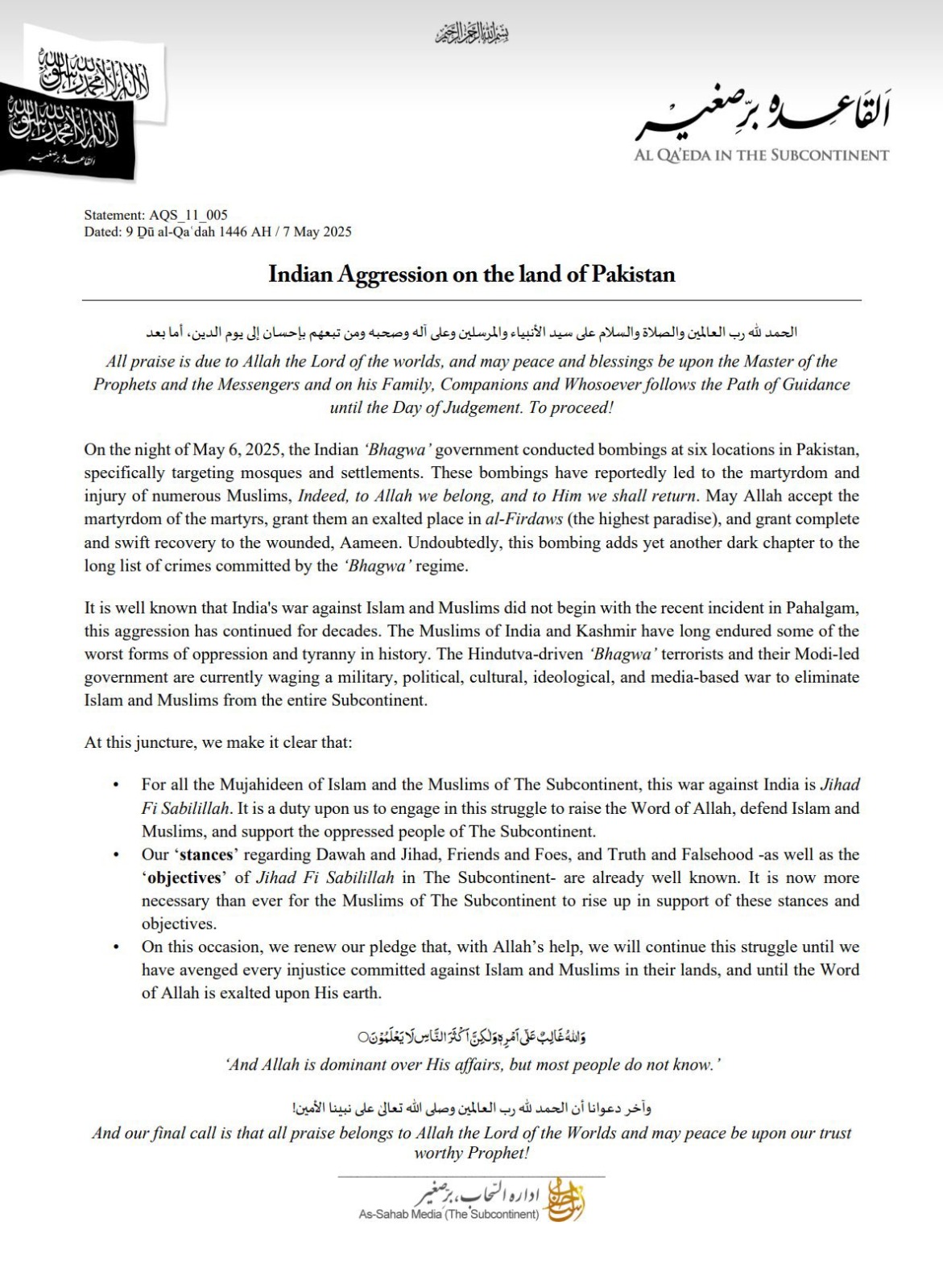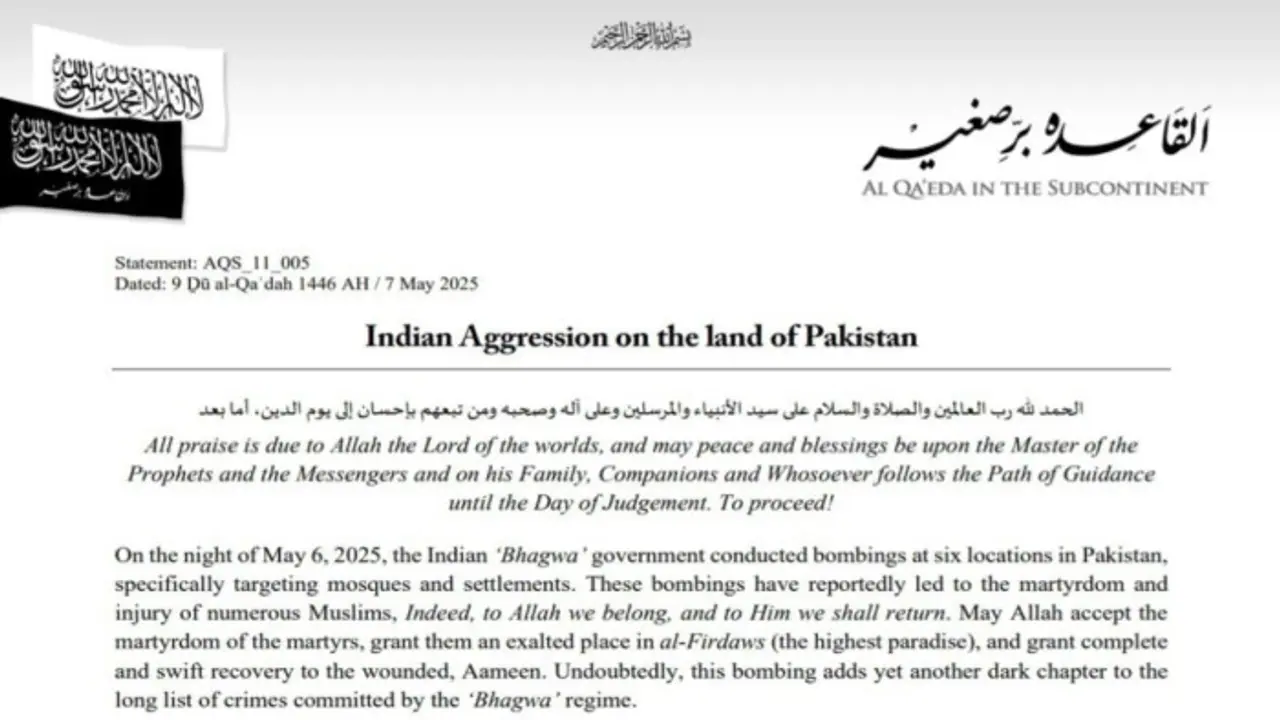AQIS has issued a statement backing Pakistan and threatening India after Operation Sindoor. The group accused the Indian government of anti-Muslim aggression and called for jihad, even as India’s global support continues to grow.
Terror outfit Al Qaeda in the Indian Subcontinent (AQIS) has issued a provocative statement targeting the Indian government following New Delhi’s recent military offensive against Pakistan under Operation Sindoor. The group accused the Indian state of "aggression" and vowed armed resistance, declaring that it was a religious duty to fight what it called the “Bhagwa regime.”


In a statement titled "Indian Aggression on the land of Pakistan", AQIS condemned India's precision airstrikes on May 6 that hit terror camps across six locations in Pakistan, reportedly killing dozens of operatives, including Lashkar-e-Taiba and Jaish-e-Mohammed cadres. AQIS claimed that the Indian strikes deliberately targeted mosques and residential areas—an assertion dismissed by Indian officials as false propaganda.
The statement, issued on May 7, framed India’s military action as part of a long-running campaign against Muslims in the subcontinent. It accused the BJP-led government of waging a “military, political, cultural, ideological, and media-based war to eliminate Islam and Muslims from the region.” Referring to the strikes as “bombings of martyrdom,” AQIS sought to portray those killed as victims of religious persecution.
Calling upon its followers and the broader Muslim community in South Asia, AQIS urged a jihad Fi Sabilillah (in the path of God), and reiterated its ideological stance on defending Islam through armed struggle. “It is now more necessary than ever for the Muslims of The Subcontinent to rise up,” the group said, while pledging renewed commitment to what it called a divine mandate to resist oppression.
Security experts believe the AQIS statement is largely rhetorical but dangerous in its potential to inspire lone-wolf attacks or stoke unrest. Indian counter-terror officials have described the release as a “desperate attempt to remain relevant” at a time when militant networks in Pakistan have suffered heavy setbacks due to Indian military action and international isolation.
The statement also referenced the attack in Pahalgam last month, where a deadly ambush killed several Indian pilgrims, though AQIS did not claim direct responsibility.
India’s military operation—dubbed Operation Sindoor—was launched in response to that ambush and other cross-border infiltrations. In a swift and precise retaliation, the Indian Air Force and special forces targeted terror training centres across Pakistan-occupied Kashmir and deep into Balochistan. Intelligence reports confirmed the elimination of more than 70 militants, including senior handlers.
The strikes drew widespread international support, with global powers including the United States, France, and the United Kingdom praising India’s measured yet forceful response to terrorism. The United Nations reiterated India’s right to self-defence, while also urging de-escalation.
In contrast, Pakistan has faced mounting pressure to crack down on terror groups operating from its soil. The AQIS statement, seen as aligning with Islamabad’s narrative, risks further tarnishing Pakistan’s global standing by associating its defence posture with transnational jihadist groups.


